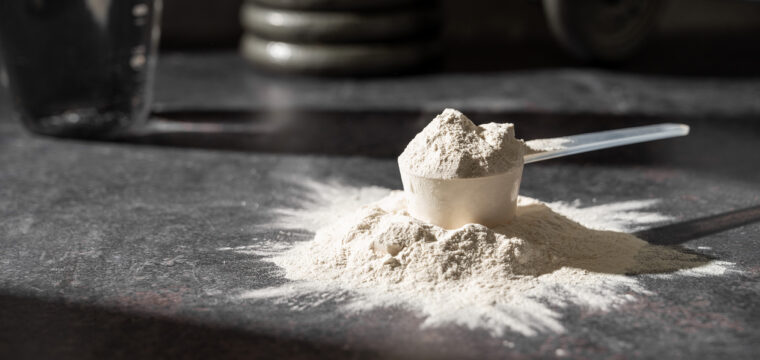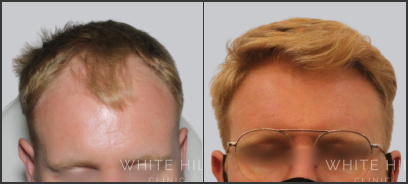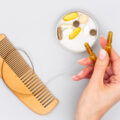Does Creatine Cause Baldness? Revealing the Truth for Vegans and Athletes
Last updated on March 20, 2025
Creatine is one of the most widely used dietary supplements among athletes, bodybuilders and fitness enthusiasts. Known for its role in muscle growth, strength enhancement and performance, it is often a go-to choice for those looking to improve their training results. However, a lingering question surrounds the supplement: does creatine cause baldness?
This concern stems from a 2009 study that suggested creatine could increase DHT levels – a hormone linked to male pattern baldness. But does this mean that taking creatine supplements inevitably leads to hair thinning? In this blog, we’ll break down the science behind creatine’s effect on hair, whether athletes and vegans should be concerned and what to do if you notice changes in your hair growth cycle.
What is Creatine and Why Do People Take It?
Creatine is a naturally occurring compound found in red meat and fish and is also produced by the body. It plays a critical role in muscle energy production, helping with intense exercise by providing quick bursts of energy to muscle cells.
Many people take creatine supplements to enhance muscle mass, increase lean muscle mass and improve sports nutrition. It is particularly popular among vegans and vegetarians, as their diets typically contain lower amounts of natural creatine from food sources.
Creatine is also well-researched, with numerous studies showing it is safe when used within normal clinical limits. Despite its benefits, some individuals worry about creatine’s effect on hair follicles, primarily due to its potential impact on DHT levels.
The Link Between Creatine and Hair Loss: What Does Science Say?
The main reason creatine has been linked to hair loss is its potential to raise DHT (dihydrotestosterone) levels. DHT is a byproduct of testosterone and higher levels of this hormone are associated with male pattern baldness in genetically predisposed individuals.
A 2009 study on rugby players found that creatine supplementation increased DHT levels by about 56% after three weeks of use. However, it is important to note:
- This study was small and has not been replicated in larger trials
- Testosterone ratio changes do not necessarily mean permanent increases in DHT
- No direct evidence shows that creatine causes hair loss or disrupts the hair growth cycle
In short, while creatine may have a slight effect on DHT levels, there is no conclusive proof that it leads to hair loss in individuals who are not already genetically predisposed.
Creatine for Vegans: Should You Be Concerned?
Since vegans do not get dietary creatine from meat sources, creatine supplementation can be particularly beneficial for muscle growth and weight gain. However, if you are vegan and concerned about hair loss, it is important to:
- Monitor your hair growth cycle and any changes in hair follicles
- Ensure adequate intake of hair-supporting nutrients like iron, zinc and biotin
- Consider whether genetic predisposition plays a role in hair thinning

Studies suggest creatine may slightly increase DHT levels, but there is no definitive link between supplementation and hair loss.
What to Do If You Notice Hair Loss?
If you are taking creatine supplements and notice hair thinning, it may not necessarily be related to DHT levels. Other factors, such as stress, diet and underlying conditions, could be contributing to the issue.
Potential Hair Loss Solutions
- Hair Growth Medication: Tailored solutions such as minoxidil to manage hair loss and promote new growth.
- Growth Factor Therapy: Utilising natural growth factors from your body to stimulate hair follicles and encourage hair regrowth.
- Hair Loss Injectables: Treatments like mesotherapy and growth factor injections to nourish hair follicles and support hair density.
- Hair Restoration Treatments: Comprehensive approaches to restore hair density and prevent further loss.
- Hair Transplant Procedures: Advanced techniques such as Follicular Unit Extraction (FUE) to address various hair loss conditions.
Conclusion
While a single study suggested a link between creatine supplementation and increased DHT levels, there is no strong scientific evidence proving that creatine directly causes hair loss.
For most individuals, creatine remains a safe and effective dietary supplement for enhancing muscle mass and sports nutrition. However, those with a genetic predisposition to male pattern baldness may want to monitor any changes and explore hair loss treatments if needed.
If you have concerns about hair growth while taking creatine, consider speaking to a specialist at White Hill Clinic to explore tailored solutions for maintaining strong, healthy hair.
How to Book a Consultation
To book a FREE consultation you can call us directly at 1300 512 345 or fill out our online form to schedule your appointment. If you have any questions or would like more information, you can also reach out to us via our contact page. We’re here to assist you and guide you through every step of the process.
FAQs
Does creatine affect kidney function?
Creatine is considered safe for healthy individuals when taken within recommended doses. Studies show that it does not negatively impact kidney function in those without pre-existing kidney issues. However, if you have a history of kidney disease, it’s best to consult a healthcare professional before supplementation.
Can creatine cause muscle cramping?
Despite claims that creatine leads to muscle cramping, research does not support this. Proper hydration and balanced electrolytes help prevent cramps and creatine may even improve muscle recovery.
Can I take both creatine and protein for muscle growth?
Yes, both creatine and protein play essential roles in muscle development. Creatine helps with energy production and strength, while protein supports muscle repair and growth. Combining them can be beneficial for overall performance and recovery.










